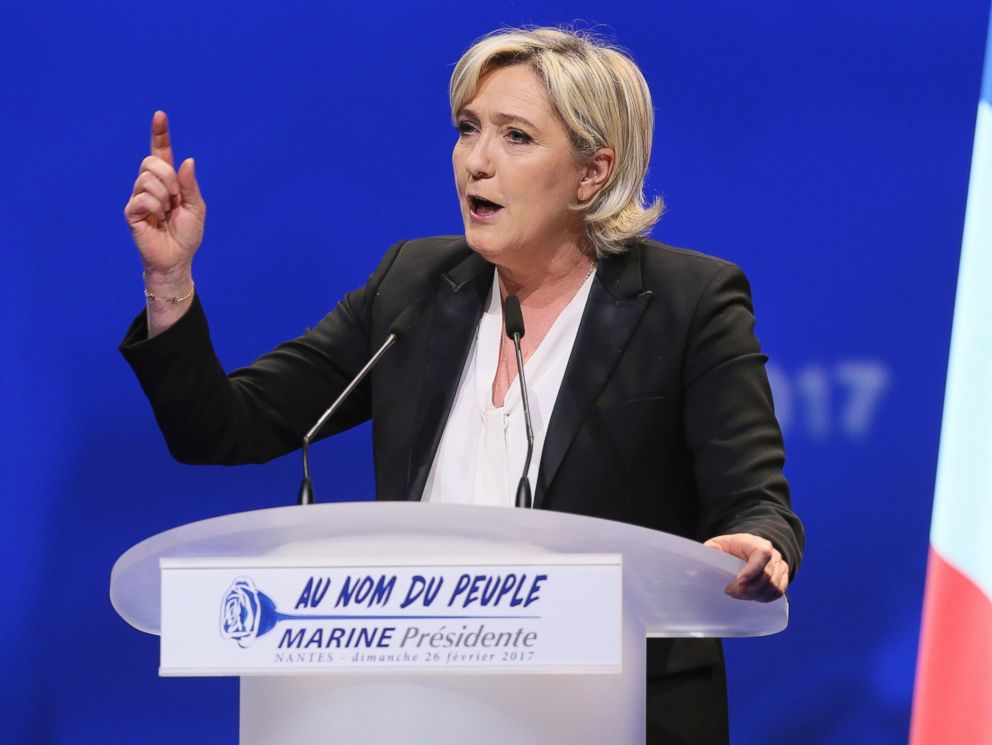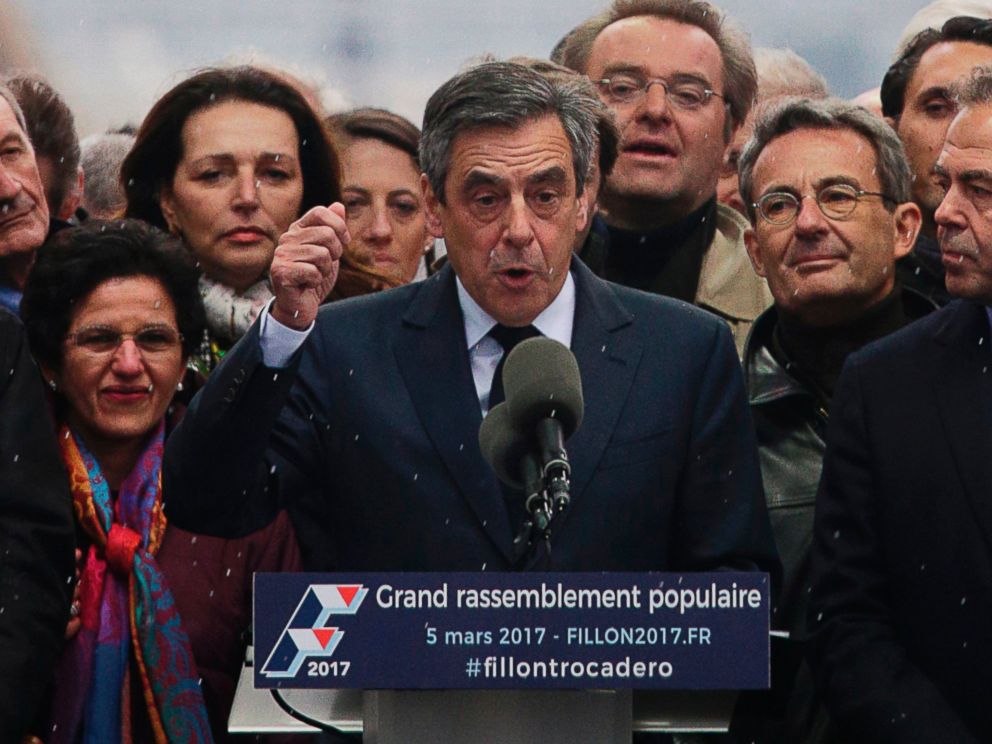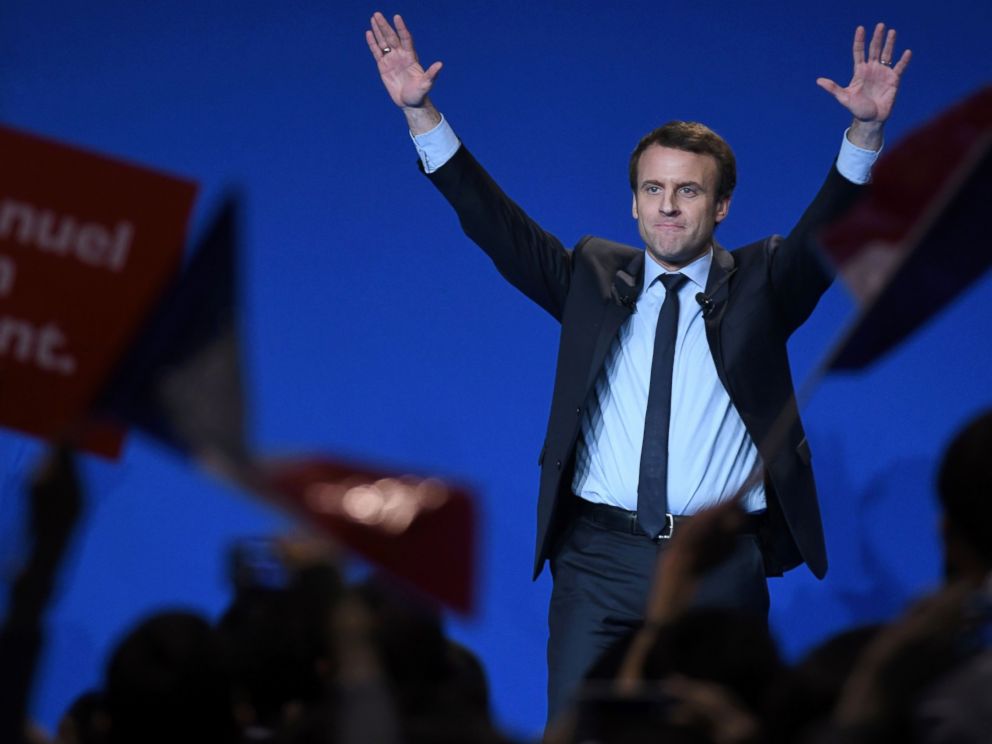
French citizens are preparing to go to the polls next month to vote in the first round of a presidential election that is already proving to be France’s most high-stakes political contest in decades. Like the U.S. presidential election, the French campaign has seen the rise of anti-establishment candidates, including the populist leader Marine Le Pen, who hopes to mimic President Donald Trump's upset victory.
Here’s what you need to know about the French election.
Who are the main players?
Marine Le Pen

The leader of France’s far-right National Front (FN) Party, Le Pen is one of the front-runners in this campaign. She has campaigned on a platform that calls for taking France out of the eurozone and holding a referendum on the country’s European Union membership, as well as reducing immigration and raising welfare benefits.
Many commentators have drawn parallels between Le Pen and Trump given the similarities in their views on free trade, NATO and migration. But, unlike Trump, Le Pen comes from a family that has been on the French political scene for decades. Her father, Jean Marie Le Pen, ran for president five times and was the leader of the FN until 2011 when she took over leadership of the party. Le Pen went on to distance herself from her father, who was notorious for making anti-Semitic remarks. She’s also attempted to recast the FN as a serious anti-establishment political force, known more for its Euro-skeptic and anti-immigrant policies than for its reputation of being xenophobic and racist.
Francois Fillon

The candidate from the mainstream conservative party Les Républicains was, just months ago, poised to sail to an election victory. Fillon had previously served as the country’s prime minister and won a 15-point victory in his party’s primary last year, beating out candidates like former President Nicolas Sarkozy.
The emergence of a corruption scandal has completely changed the playing field and his prospects. The politician has faced allegations that he paid his British-born wife for work she never did during her time as his parliamentary assistant. Prosecutors have now opened a full judicial inquiry into his use of public funds. Fillon has maintained his innocence and has defiantly refused to step down as his party’s candidate. But, as his chances of making it through the first round of voting next month fade, the party will meet this week to discuss the possibility of a replacement candidate.
Emmanuel Macron

One of the youngest candidates in this race, Macron, 39, was once the protege of current French President François Hollande and served as his economy minister before breaking away last year to start his En Marche (Forward) movement. Macron has described En Marche as "neither left nor right," but rather an attempt to transform the French political system, which he criticizes for being dominated by large interest groups.
The former investment banker has promoted both pro-business and socially liberal policies, giving him a centrist appeal that other candidates lack. However, opponents have criticized him for being a political novice while pointing to unpopular measures he backed during his government tenure, including a law named after him which allowed businesses to open on Sundays and gave employers more negotiating power.
When is the vote?
There are two rounds of voting: April 23 and May 7. Unless a candidate wins an outright majority in the first round of voting (which is not likely in this election), the top two candidates face off in the May runoff which determines the president.
What are the biggest issues?
Security is one of the biggest issues in this election following a wave of terror attacks in the country that have left more than 320 people dead since January 2015. The attacks have focused attention on Islamic extremism and raised questions about French national identity and the role of immigration.
Unemployment is also a major issue for candidates in this election. It currently stands at about 10 percent and is one of the highest in the European Union. The issue has plagued Hollande during his five-year term and every candidate in the race has voiced support for making changes to address the stubbornly high rate.
Who is expected to win?
Typically, two parties dominate French elections in the runoff round -- the conservative Les Républicains and the Socialist Party. This year is a glaring exception to that rule. Hollande, who is incredibly unpopular in France, is not contesting the election; the conservative candidate Fillon is embroiled in a corruption scandal; and both Le Pen’s FN and Macron's En Marche are making a serious play for the runoff.
At the moment polls show Le Pen leading by about five points in the first round of voting with Macron in second place. But Macron is also predicted to beat Le Pen by 16 points in the runoff.
Why are these elections significant?
France’s neighbors are watching these elections very closely since the outcome could determine the future of the European Union. A victory for Le Pen, who has called for a referendum on EU membership, could lead to one of the biggest existential challenges to the bloc, given the size of France’s economy and especially coming in the wake of the United Kingdom’s decision to leave the EU.
France’s leading role in major global issues, including the fight against terrorism and the migrant crisis, also mean that the results of this leadership contest will be felt beyond the country’s borders.

